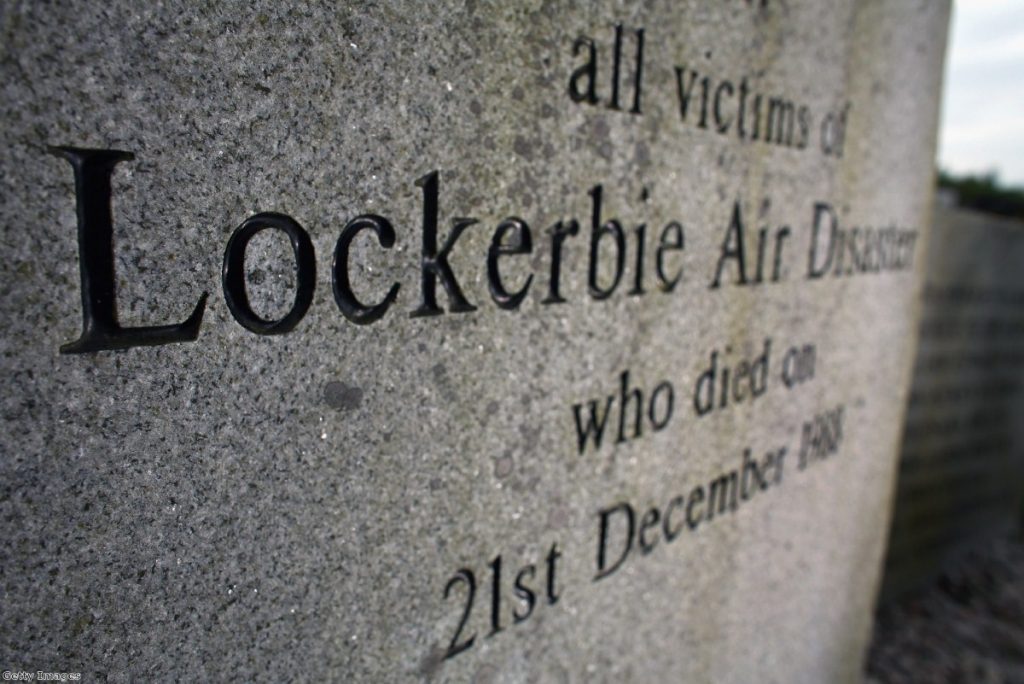Libya: British search for justice faces brick wall
By Ian Dunt Follow @IanDunt
There are growing signs that Britain's long-held legal issues with Libya will come to nothing in the wake of the rebel victory.
As senior government figures admitted that Lockerbie bomber Abdelbaset al-Megrahi was unlikely ever to be extradited from the country, reports emerged of the death of a man suspected of killing of Yvonne Fletcher in 1984.
Unconfirmed reports from the Telegraph suggest Abdulqadir al-Baghdadi, one of three men suspected of WPC Fletcher's murder, was found dead last Tuesday in a suburb of eastern Tripoli.


Downing Street continued negotiating with rebel forces to have British police travel to Libya to pursue their investigations over the murder.
Meanwhile, the row over the release of Lockerbie bomber Al-Megrahi neared its end after pictures emerged of him on what appeared to be his death bed.
Family members said he was slipping in and out of a coma in the final stages of prostate cancer, effectively bringing to an end the hopes of figures in the US to have him extradited.
"It is clear that many of these matters are now academic as his life is drawing to a close," Andrew Mitchell, international development secretary, said.
The Scottish executive faced considerable criticism from Washington and then-opposition leader David Cameron for its decision in 2009 to release Al-Megrahi on compassionate grounds on the basis that he only had three months to live.
His victorious arrival in Libya and subsequent survival for two years was a major source of embarrassment for Scotland, but the newest pictures to emerge show that the collapse of the Gaddafi regime is unlikely to provide an opportunity to have the decision reversed.
"The latest pictures broadcast of Mr Al-Megrahi clearly demonstrate that he is an extremely sick man, dying of terminal prostate cancer," said first minister Alex Salmond.
"Hopefully, this will end the ridiculous conspiracy theories that seek to claim anything else."
Dr Jim Swire, who lost his daughter Flora in the Lockerbie bombing, said Al-Megrahi deserved to die in peace.
"I feel in view of all he's been through that he should have been accorded a peaceful end in Tripoli with his family. The idea of extraditing him is a monstrous one," he said.
"This is a man who withdrew his appeal so that he could be allowed to die close to his family and he deserves to be left in peace for his last days."
Meanwhile, the British government expressed little interest in the increasingly bitter war of words which erupted after Muammar Gaddafi's wife and three of his children were accepted into neighbouring Algeria.
The rebel National Transitional Council (NTC) was livid at the news, with spokesman Mahmoud Shamman telling Reuters: "We have promised to provide a just trial to all those criminals and therefore we consider this an act of aggression.
He added: "We are warning anybody not to shelter Gaddafi and his sons. We are going after them… to find them and arrest them."
For the British government, Mr Mitchell seemed largely unaffected by the news, saying it was "not a matter for disappointment".
A foreign ministry statement said Colonel Gaddafi's wife Safia, daughter Aisha and sons Muhammad and Hannibal left Libya early on Monday. Muhammad and Hannibal were distant from their father's political life.
Algeria's long border and refusal to recognise the NTC would have made it a tempting destination for the family as they fled the situation in Libya.
In a reminder of the brutality of their father's regime, journalists visited sites thought to be mass graves left behind by the authorities – possibly of army officers who refused to fight for Col Gaddafi.
Mr Cameron chaired a national security council meeting on Libya this morning, ahead of an international conference in Paris later this week.
The reports came as rebel forces prepared for a final push against the final two pro-Gaddafi outposts, in Sirte, his birthplace, and Sabha, a city on the south coast.
Nato jets continued to pound the cities while rebels offered a deadline of Saturday before they invade Sirte.
"We can act decisively to end this situation in a military manner," NTC head Mustafa Abdel Jalil said during a press conference.
"We don't wish to do so, but we can't wait longer than that."









